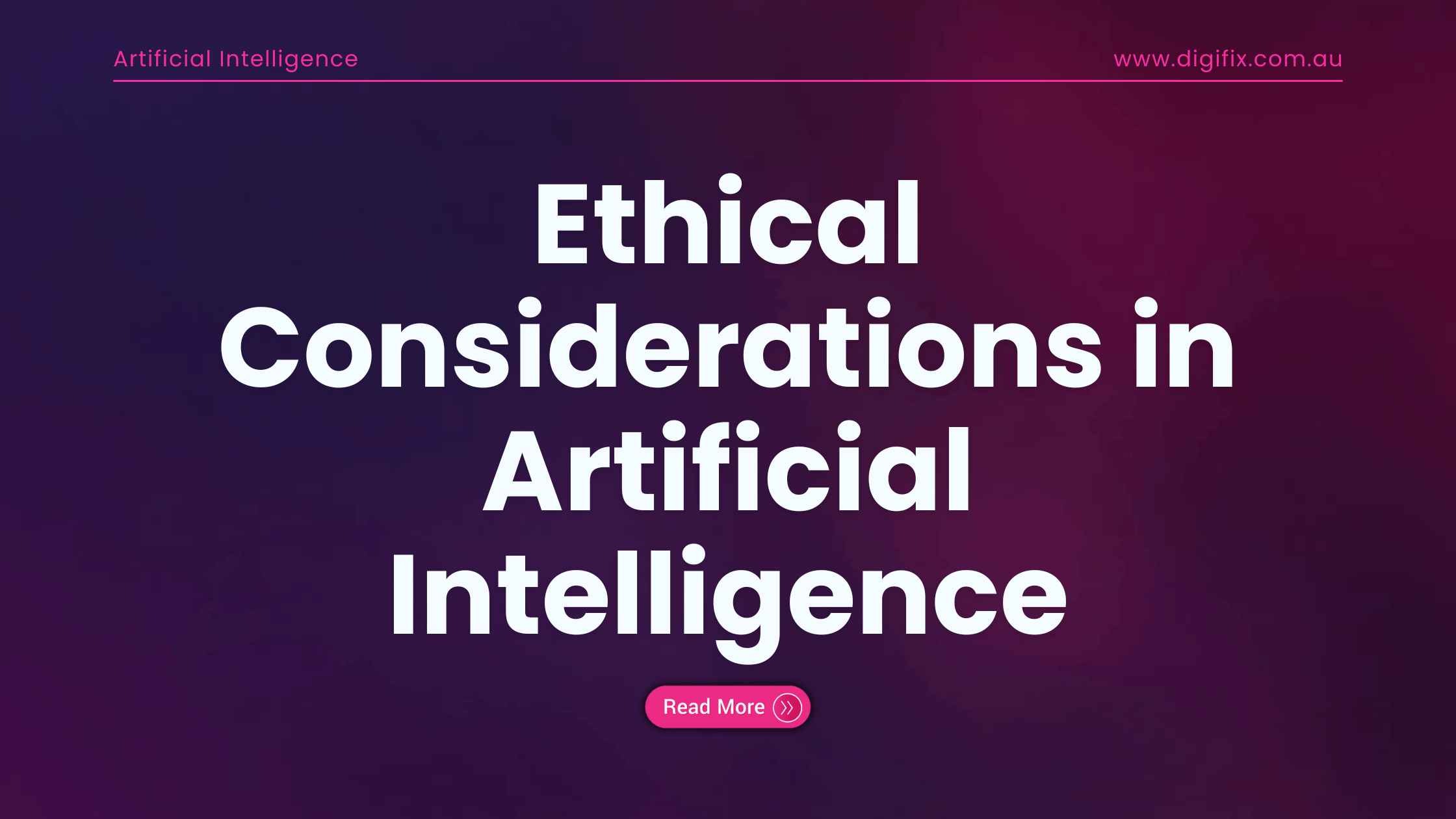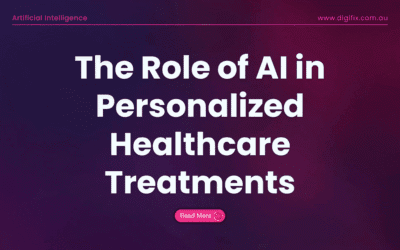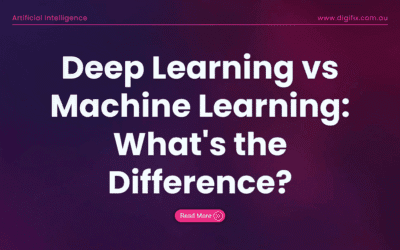As AI becomes more common in our lives, is it being used responsibly? AI is changing how businesses work. It’s key to think about the ethics of this technology. Discover The ethical considerations in artificial intelligence & how to implement AI responsibly.

Companies, with support from agencies like DigiFix, an AI automation agency in Melbourne, use AI to improve workflows and productivity. But, they must also think about the ethical implications of AI.
Key Takeaways
- Understanding the importance of AI ethics in business operations.
- Recognising the role of agencies in implementing ethical AI practices.
- The need for a balanced approach to AI adoption and ethical considerations.
- Strategies for businesses to ensure the responsible use of AI.
- The impact of ethical AI on long-term business sustainability.
The Current State of AI Ethics
Artificial Intelligence (AI) is now part of our daily lives, sparking debates on its ethical implications. As we explore AI’s potential, it’s vital to grasp the current state of AI ethics. This includes the ethical considerations of ai.
Historical Development of AI and Ethical Frameworks
AI’s growth has led to the creation of ethical guidelines. At first, AI research ignored ethical concerns, causing ai issues concerns and ethical considerations.

The Growing Importance of Ethical AI
Ethical AI is more important than ever. AI’s role in making decisions means we must ensure it’s fair and transparent. Ethical AI is not just a moral issue but also a business need, as people and regulators want more responsible AI.
Australian Perspective on AI Ethics
In Australia, the AI ethics conversation is getting louder. The government has set up an AI Ethics Framework. This aims to ensure AI aligns with Australian values and ethical principles.
Ethical Considerations in Artificial Intelligence: Core Principles
Ethical AI is about more than just avoiding risks. It’s about using AI to help society. As AI becomes a big part of our lives, we need to know the rules for making and using it.
Defining Ethics in the Context of AI
Ethics in AI means following moral rules in making and using AI. It’s about thinking about how AI affects people and society. We want AI to be clear, fair, and protect human rights.
Key Ethical Principles for AI Development
Important ethical rules for AI include transparency, accountability, and fairness. It’s key for AI to be open and easy to understand to gain trust. Developers must also think about using AI the right way, avoiding biases and matching human values.
Stakeholders in AI Ethics
Many groups are involved in AI ethics, like developers, policymakers, users, and civil groups. Each group is important for shaping AI’s ethics. For example, policymakers can set rules for using AI ethically, and developers must put ethics into AI systems.
It’s vital to understand AI’s ethics and how to use it right. By focusing on AI’s ethics, we can make sure AI is used wisely and safely.
Bias and Fairness in AI Systems
The use of artificial intelligence (AI) is growing fast. We need to check if these systems are fair and unbiased. As AI touches more lives, it’s key to think about its ethical side.
Sources of Algorithmic Bias
There are many reasons for AI bias. These include data quality issues, algorithm design, and human prejudices. Knowing where bias comes from helps us fix it.
Real-world Consequences of Biased AI
Biased AI can harm people in real life. It can lead to unfair treatment in jobs or in how police act. This shows why we must make AI fair.
Methodologies for Detecting and Mitigating Bias
Fixing AI bias needs both tech and organisational steps.
Technical Approaches
Technical ways include cleaning data and using fair algorithms. Regular checks for bias are also key. These steps help make AI less biased.
Organisational Practices
Organisational steps are just as important. Things like diverse teams and clear AI development help. Our AI Automation Services in Melbourne help make AI fair and just.
By using tech and organisational methods together, we can create AI that’s both strong and fair.
Privacy Concerns and Data Protection
AI’s growing use highlights the need for privacy and data protection. AI systems use a lot of personal data. It’s crucial to protect this data and be clear about how it’s used.
Ethical Data Collection and Usage
Collecting and using data ethically is key for trustworthy AI. It’s important to get people’s consent and only collect necessary data. Data must also follow privacy laws and be handled with care.
Businesses should be open about their data use to gain customer trust.
Balancing Innovation with Privacy Rights
It’s tough to balance AI’s benefits with privacy concerns. AI can offer great advantages, but we must consider privacy risks. Using privacy by design can help, making privacy a part of AI development from the start.
Australian Privacy Regulations for AI
Australia has rules for privacy and data protection, like the Privacy Act 1988. Companies in Australia must follow these rules when using AI.
Compliance Requirements
Following the Australian Privacy Principles (APPs) is part of compliance. This means handling personal data lawfully and securely.
Best Practices for Businesses
Businesses should have strong data protection policies and do privacy impact assessments. Training staff on privacy is also important. This way, companies can meet regulations and earn customer trust. DigiFix shows how crucial ethical AI development is.
Transparency and Explainability in AI
Transparency and explainability are key in making AI systems ethical. As AI becomes a big part of our lives, it’s important to know how it works. This helps build trust and ensures it’s used right.
The Black Box Problem
Many AI systems are like ‘black boxes,’ where we can’t see how they decide things. This lack of clearness raises worries about bias, who’s to blame, and misuse. Fixing the black box problem is vital for AI’s ethical use.
Techniques for Creating Explainable AI
There are ways to make AI more understandable, like model interpretability and transparent design. We also use explainability techniques after AI is made. These help us see how AI decides, making it more trustworthy.
Building Trust Through Transparent AI Systems
Transparent AI systems are key to gaining trust from users and others. By explaining how AI decides, we encourage its ethical use. This openness is essential for AI to be widely accepted in different areas, making sure it’s good and fair.
To learn more about ethical AI, including making it clear and understandable, get expert advice. Your first consultation is 100% FREE!
Accountability and Governance Frameworks
AI is becoming a big part of our lives, making accountability and governance more important. We need to make sure AI is used responsibly. This means setting clear rules, having regulators watch over us, and following industry standards.
Establishing Responsibility in AI Systems
It’s key to know who’s to blame when AI goes wrong. This includes the people who make and use AI, and the ones who watch over them. Clear rules are vital to make sure everyone knows their part.
Regulatory Approaches in Australia and Globally
AI rules are changing in Australia and around the world. In Australia, groups are making standards that balance new tech with safety and openness. Worldwide, there’s a push to make AI rules the same to help everyone work together.
Industry Self-Regulation and Standards
Companies have a big role in making AI rules. By following industry standards and best practices, they show they care about ethical AI. This includes getting certified and going through ethical checks.
Certification Programmes
Certification for AI systems shows they’re safe and ethical. It helps people trust AI more.
Ethical Auditing
Ethical auditing checks if AI follows the right rules. It helps find and fix any ethical problems.
With these frameworks, we can make sure AI helps society. Book your session now and start your AI journey.
AI and Employment: Navigating Workforce Transformation
AI is changing how we work in many industries. As companies in Australia and worldwide use AI, worries about job loss and change are rising. We must tackle these issues by understanding the ethical implications of automation and finding ways to lessen its bad effects.
Ethical Implications of Automation
Automation of jobs brings big ethical worries, like job loss and the need for new skills. Companies like DigiFix, which helps businesses use AI, must think about these issues. It’s key to make sure AI helps people, not just replaces them.
Reskilling and Adaptation Strategies
To deal with AI’s challenges, businesses and governments need to invest in reskilling and adaptation strategies. This means offering training that helps workers use AI. By focusing on upskilling, we can keep the workforce valuable in an AI world.
Creating Responsible AI Transition Policies
Creating responsible AI transition policies is crucial for managing AI’s impact on jobs. These policies should balance innovation with protecting workers’ rights. This way, we can build a future where AI improves job chances, not just takes them away.
Security and Safety Considerations for AI Systems
AI is becoming more important, and keeping these systems safe is key. As AI enters more areas of our lives, making sure it’s used right is vital.
Preventing Malicious Use
Stopping AI from being used for harm is a big challenge. We need strong security to prevent this. Knowing how to use AI the right way helps a lot.
Ensuring Robustness Against Attacks
AI systems must be built to resist attacks. They need algorithms that can spot and fight threats quickly. This keeps the AI system safe.
Ethical Hacking and AI Security Protocols
Ethical hacking is important for checking AI’s security. It helps find weak spots and make AI safer. This makes AI more reliable and secure.
Implementing Ethical AI in Business: A Practical Approach
Ethical AI is key for businesses today. It’s not just about doing the right thing. It’s also about staying ahead in a world driven by artificial intelligence. Companies must focus on ethical considerations of AI to keep trust and succeed.
Developing an Ethical AI Strategy
A solid AI strategy is the first step. It involves:
Custom AI Strategy Sessions
Custom sessions help tailor AI plans to fit each business. This ensures ethics are considered right from the start.
Implementation Planning and Risk Assessment
Good planning and risk checks are vital. They help spot and fix ethical issues before they start.
Ethical Content Generation Using AI
AI for content raises big ethical questions. Businesses need to:
Guidelines for Responsible AI Content
Set clear rules for AI content. It should be true, fair, and respect others’ work.
Quality Control Processes
Strong quality checks are needed. They keep AI content honest and stop misuse.
Training Teams for Ethical AI Use
Teams need to know how to use AI right. This means:
AI Workshops and Education
AI training helps employees use it wisely. They learn about its ethical side.
Building an Ethical AI Culture
Creating a culture that values ethical AI is key. It makes sure ethics are part of everything the business does.
By focusing on practical steps, businesses can use artificial intelligence well. They can avoid its downsides and stick to ethical considerations of AI.
Conclusion: The Path Forward for Ethical AI
As we explore AI development, ethical considerations in artificial intelligence are key. We need a broad approach to tackle bias, privacy, and more. This ensures AI is used responsibly.
Businesses must focus on the ethics of using AI. They should aim for fairness, security, and safety. This way, they can use AI effectively while avoiding its downsides.
DigiFix, a leading AI agency, helps businesses on this journey. They work with experts to create AI solutions. These solutions are innovative and ethical.
The future of ethical AI depends on teamwork. We must keep talking and working together. By sticking to ethical considerations in artificial intelligence, we can make AI better for everyone.





0 Comments